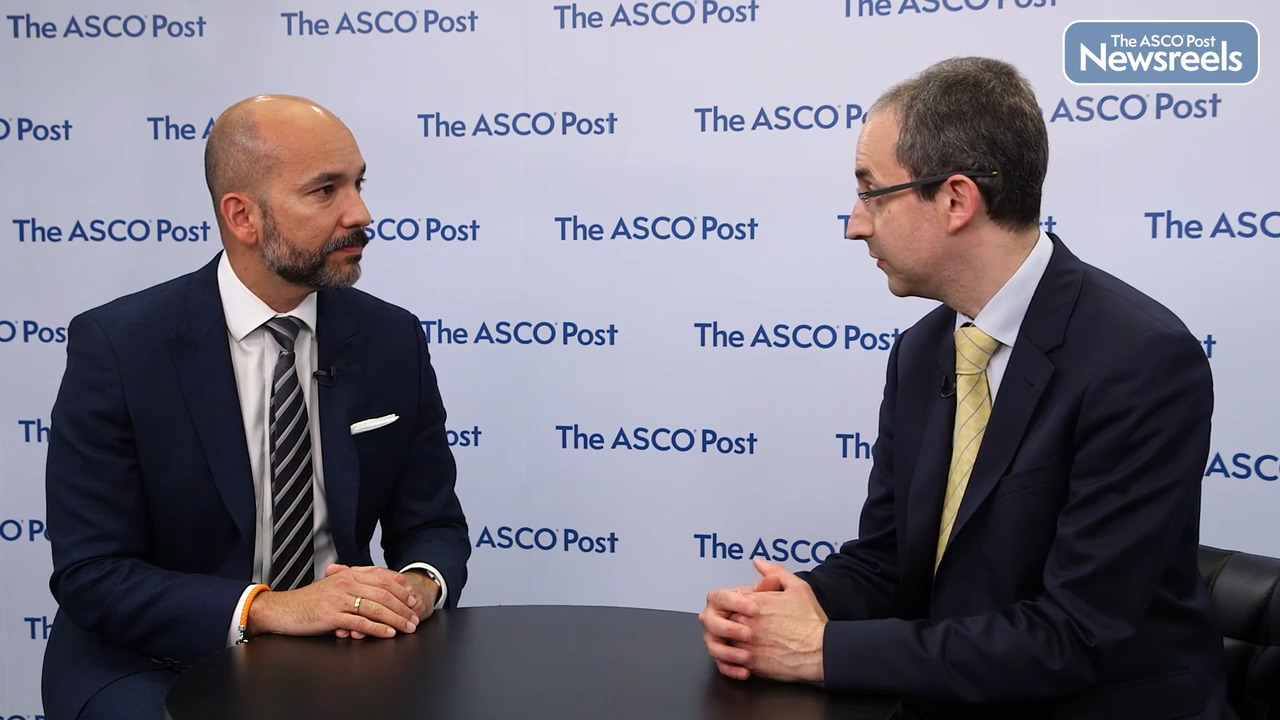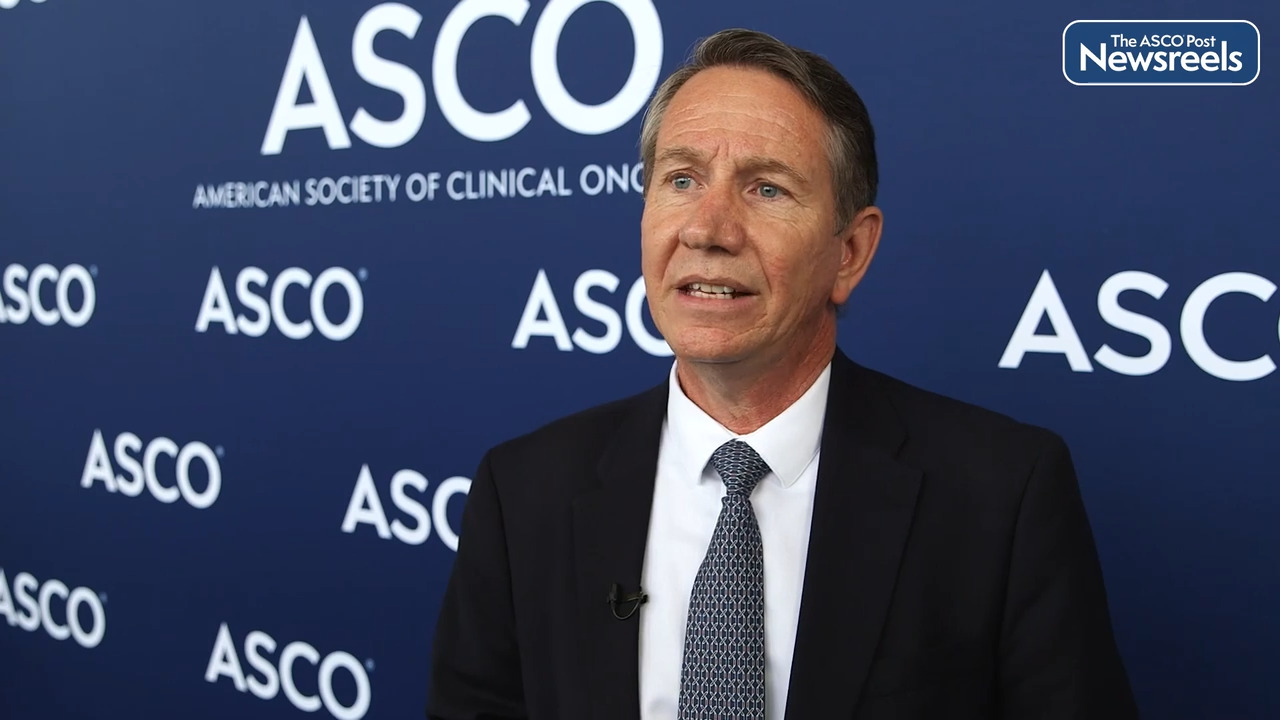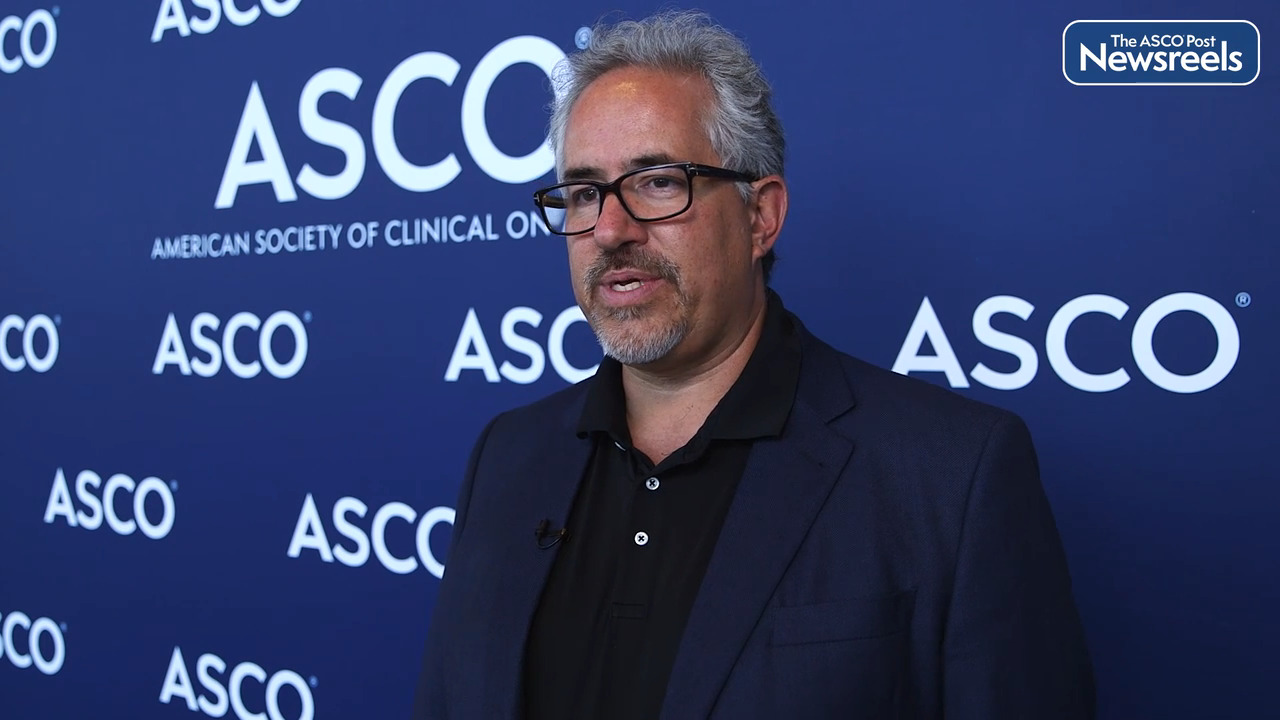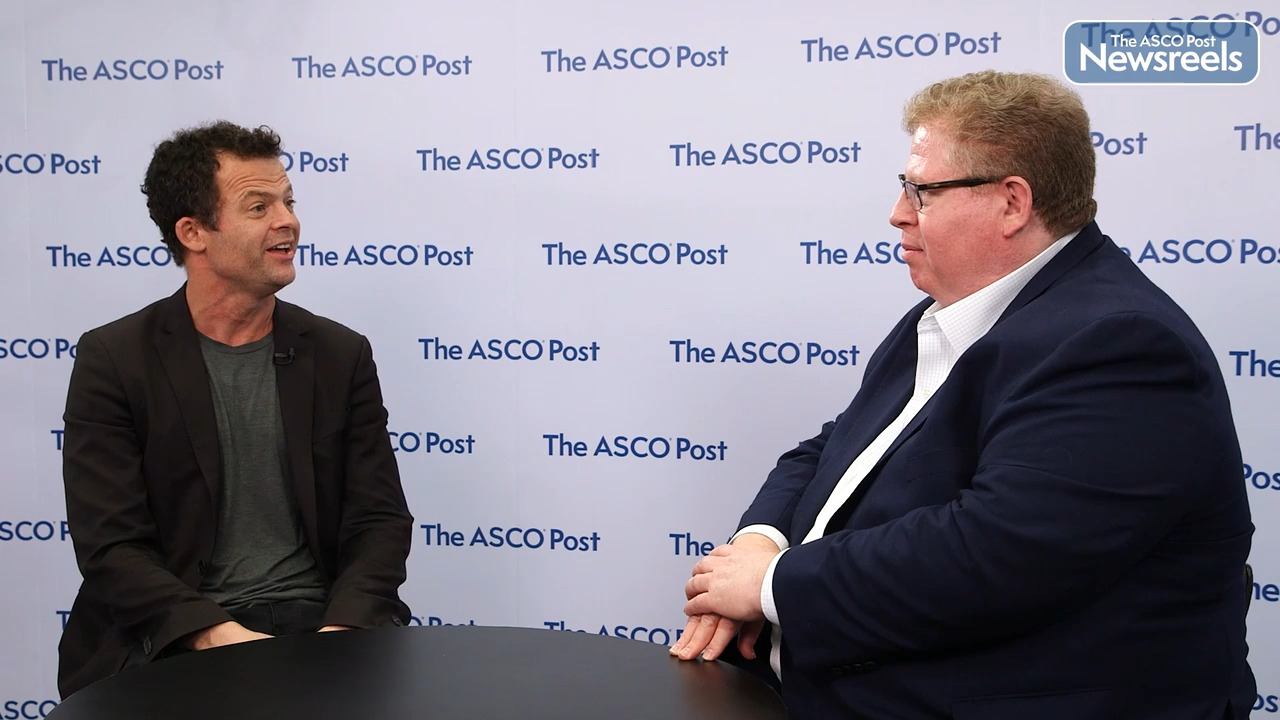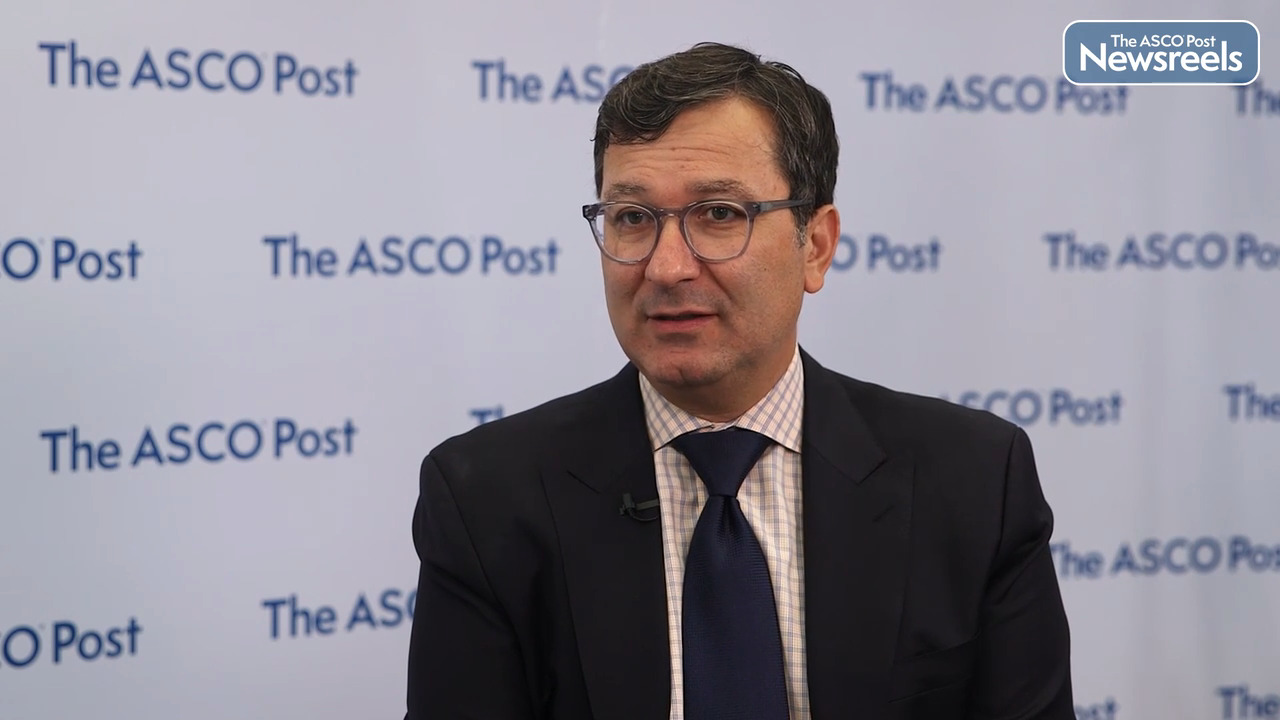Alfredo Carrato, MD, PhD, on Pancreatic Cancer: Nab-Paclitaxel, Gemcitabine, and FOLFOX for Metastatic Disease
2022 ASCO Annual Meeting
Alfredo Carrato, MD, PhD, of Alcala de Henares University in Spain, discusses phase II results from the SEQUENCE trial, which showed that nab-paclitaxel, gemcitabine, and modified FOLFOX showed significantly higher clinical activity than the standard nab-paclitaxel and gemcitabine in the first-line setting of patients with untreated metastatic pancreatic ductal adenocarcinoma (Abstract 4022).
Transcript
Disclaimer: This video transcript has not been proofread or edited and may contain errors.
It's a pleasure for me to show the results of the SEQUENCE trial. The SEQUENCE trial was a randomized phase two trial in pancreatic cancer patients, metastatic ones on first line and we tried to increase the efficacy of the regimens used for treating these patients. So the rational that there were two subtypes of pancreatic cancer, the basal one responded better to Nab-Paclitaxel Gemcitabine and the classical one better to FOLFIRINOX. So as it was impossible to give both regimens at the same time for toxicity issues, we decided to give them sequentially first Nab-Paclitaxel Gemcitabine, and then not FOLFIRINOX, FOLFOX because we thought that the oxaliplatin was the main drug of the combination. And on top of that, we had that Nab-Paclitaxel was given up front and it was depleting this trauma and allowing the drugs to get in touch more efficiently with the tumor cells. So we performed a phase I trial, and we were surprised because we were expecting some neurological toxicity, but no neurologic toxicity appeared and it was safe at full doses and it was published at the European General Cancer two years ago. Then we designed this randomized phase two trial, trying to increase 50% the survival of patients at one year. It was from 35% to 50%, more or less. So with these things in mind, we designed a trial in which 78 patients per arm were needed and the safety results showed that neutropenia and thrombocytopenia were higher in the experimental arm, significantly higher, 47% and 26% and the efficacy at 12 months hypothesis was met. We found that 55.5% of patients were alive at one year in the experimental arm and only 35% in the control arm, which was Nab-Paclitaxel and gem without FOLFOX. So we looked for other efficacy parameters, like time to progression free survival, overall survival, and all of them were positive. In favor of the experimental arm. We reached a median overall survival of 13.2 months versus 9.5 months in the control arm. The hazard ratio was lower to 0.65 and this was real good surprise because we have discovered a new treatment option for our patients and pancreatic cancer patients have few good news. In the last 20 years, just two trials demonstrated an increase in efficacy rates. One of them was the Nab-Paclitaxel Gemcitabine and now against this regimen, we have demonstrated a superiority in efficacy. So we are happy about that and because our patients will live longer and have another option for treatment. This is only for a core zero and one patients, it's only for well fit patients, not for performance status, middle, core two, or very old patients but when you have these patients, this regimen provides excellent results.
Related Videos
The ASCO Post Staff
Gilberto de Lima Lopes, Jr, MD, MBA, of the Sylvester Comprehensive Cancer Center at the University of Miami, and Matthew Krebs, PhD, of The University of Manchester and The Christie NHS Foundation Trust, discuss results from the CHRYSALIS study. The trial showed that the bispecific antibody amivantamab-vmjw demonstrated antitumor activity, even after prior treatment, in patients with non–small cell lung cancer that exhibits the MET exon 14 skipping mutation (Abstract 9008).
The ASCO Post Staff
Stephen M. Ansell, PhD, MD, of Mayo Clinic, discusses updated data from the ECHELON-1 trial, which showed that, when administered to patients with stage III or IV classical Hodgkin lymphoma, the combination of brentuximab vedotin, doxorubicin, vinblastine, and dacarbazine (A+AVD) vs doxorubicin, bleomycin, vinblastine, and dacarbazine resulted in a 41% reduction in the risk of death. These outcomes, says Dr. Ansell, confirm A+AVD as a preferred option for previously untreated disease (Abstract 7503).
The ASCO Post Staff
Ruben A. Mesa, MD, of Mays Cancer Center at UT Health San Antonio MD Anderson Cancer Center, discusses new findings from the MOMENTUM study. This trial showed that in symptomatic and anemic patients with myelofibrosis, momelotinib was superior to danazol for symptom and spleen responses, as well as transfusion requirements (Abstract 7002).
The ASCO Post Staff
Thomas Powles, MD, PhD, of Barts Health NHS Trust, Queen Mary University of London, and Jonathan E. Rosenberg, MD, of Memorial Sloan Kettering Cancer Center, discuss the 24-month findings from the phase III EV-301 trial, which suggest that enfortumab vedotin-ejfv continues to show a significant and consistent survival advantage over standard chemotherapy in patients with previously treated advanced urothelial carcinoma (Abstract 4516).
Karim Chamie, MD, of the University of California, Los Angeles, discusses final clinical results on combining the superagonist N-803 with bacillus Calmette-Guérin (BCG) in patients whose carcinoma in situ and high-grade non–muscle-invasive bladder cancers are unresponsive to BCG alone. Of note, cystectomy was avoided in more than 90% of patients with 2 years of follow-up (Abstract 4508).
